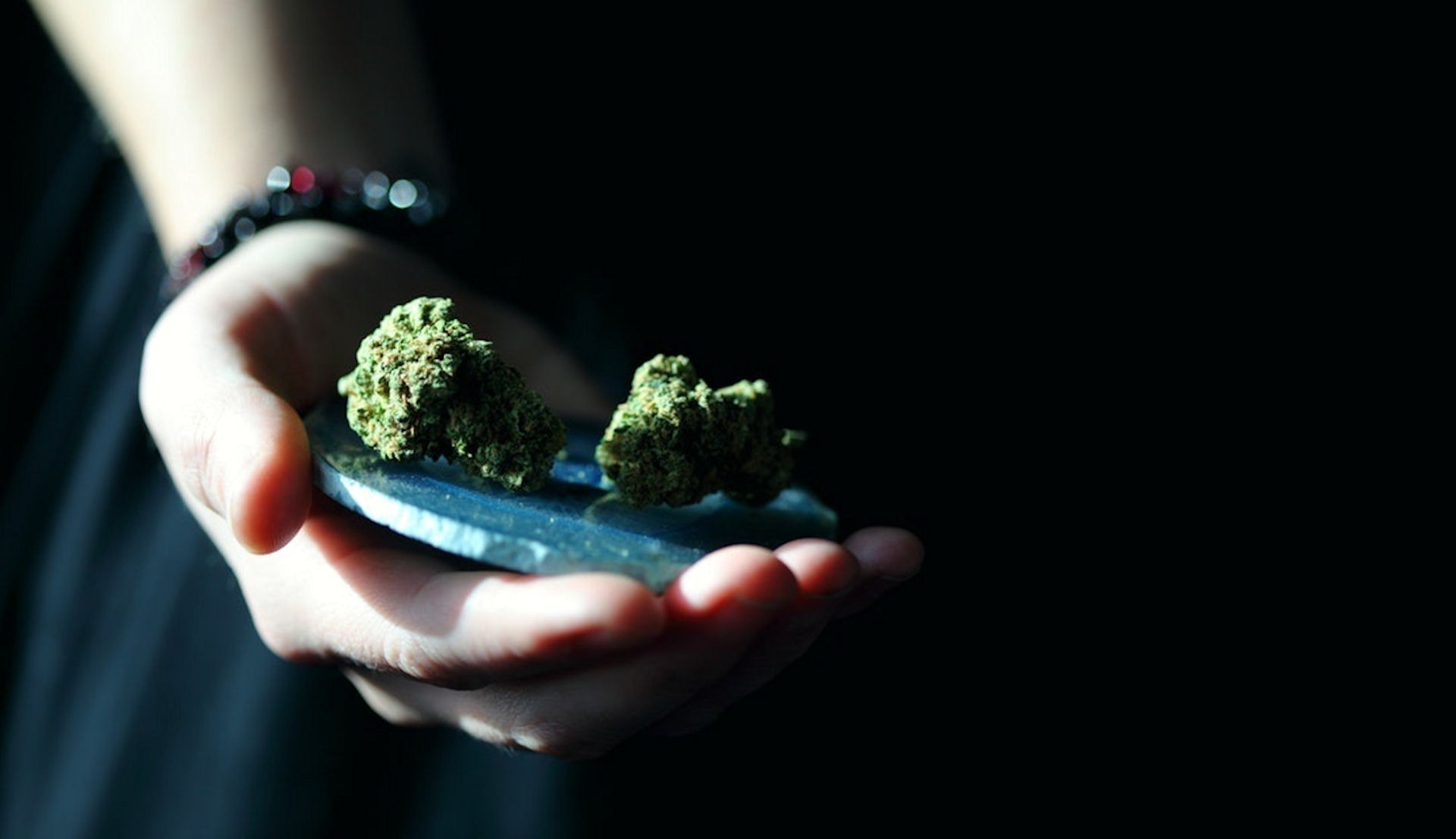Marijuana is an addictive substance that is still widely misunderstood. Thanks to its classification as a Schedule I drug in the United States, there hasn’t been nearly as much research on it as there has been for substances such as alcohol. However, more research is coming out about how marijuana affects the body and how people can use it for medicinal purposes.
However, addiction to cannabis products is still very possible if used in excess or in an unhealthy way. If you believe you’re developing a cannabis dependence, it’s best to look into detoxing to break your addiction. It’s unhealthy for your body to be addicted to any substance, even if it’s “just weed.”
How does an individual detox from weed?

How long will it take to detox from weed?
THC (delta-9-tetrahydrocannabinol), the active ingredient in weed, is stored in the fat cells of the body. This is different from substances like alcohol, which is processed similarly to food and affects the nervous system. It can take up to 30 days to fully purge the body of cannabis and its associated substances. This will, of course, highly depend on the amount and frequency of use. Hair testing can also detect cannabis use for up to 90 days, long after marijuana stays in your system.
Marijuana detox and withdrawal symptoms
These are the classic symptoms of detoxification and withdrawal from cannabis:
- Cravings
- Temporarily disturbed sleep
- Mood fluctuations (“the miseries”)
- Depression
- Boredom
- Anxiety
- Headaches
- Excess gas
- Increase or decrease in appetite
- Headaches
- Dehydration
- Negative mood
- Excessive sweating
- Stomach pains
- Shakiness
- Fever
Keep in mind that not everyone detoxifying from THC will experience the same symptoms, especially if they aren’t heavy or daily users.
A Short Overview of Marijuana
The word “marijuana” is not a full description of all products currently available on the market made from the cannabis sativa plant or that contain THC. While the word has been used to distinguish it from hemp products, it refers to only the flowering bud of the plant. The general word for all products made for human consumption is “cannabis,” because they can be made from other parts of the plant as well (such as the stem, leaves, and distilled tinctures).
Cannabis can be consumed in several ways, with each format having different levels of intensity:
- Bud/flower (literally known as marijuana)
- Edibles, such as gummies and brownies
- Tinctures
- Hand-rolled cigarettes, also known as “joints” or “blunts” if mixed with tobacco
- Dabs/resin
- Pre-loaded vaporizers
- Salves/topicals
What are the effects of cannabis?
The effects of cannabis will depend highly on the format in which it is consumed, the type of strain (sativa, indica, or hybrid), and the strength of the individual batch. But most cannabis consumers experience some or all of the following effects:
- Relaxation
- Euphoria
- Slowed perception of time
- Increased feelings of creativity
- Relief from pain
- Increased appetite
- Experience of being “lifted”
- Increased sociability or benevolent introspection
Keep in mind that these effects are the occurrence of a positive experience with cannabis. A negative experience can produce effects like a racing heartbeat, disturbed sleep, and even delusions. Paranoia is a classic side effect of both an acute excess of weed and a chronic dependence. Holistic treatment may be necessary to provide long-lasting relief from cannabis dependence.
What is Marijuana Dependence?
There are many conceived notions that cannabis is a “harmless” drug, or that the effects aren’t are harmful as other addictive substances. However approximately 3 out of 10 people develop a cannabis addiction, and preliminary studies suggest that cannabis use can alter a person’s memory. Potential harm multiplies when a using individual is a teenager or young adult.
Signs of Cannabis Dependence
Please note that there has not been much official research done on cannabis and its effects on the body, largely due to its classification as a Schedule I drug under United States law. However, dependence can show up similar to how it does with other substances.
These are signs of a potential addiction to cannabis:
- Relying on weed to change your mood
- Joking about how much weed you consume
- Consuming weed in unsafe circumstances, such as driving
- Stopping favorite activities to have weed
- Anger when confronted about how much weed they consume
- Inability to stop smoking weed (even if you want to)
- Financial problems or criminality to afford weed
Even if there aren’t life-debilitating signs of addiction, it’s important to consider if someone has a dependence on weed if other people in their life express concern. The substance is notorious for consuming hours of a person’s day, and the “lightening” mental effect can be habitually addictive.
Is Marijuana a Gateway Drug?
Many people think that cannabis products are “gateway drugs,” in that they open the door for individuals to crave other types of addictive substances. There is no established proof of this effect, as consumption (and even addiction to) an addictive substance does not automatically create an addiction to another substance. Individuals will differ in their curiosity about other substances after consuming cannabis. They may seek a more accelerated high or one with more intense effects than what cannabis inherently offers.
However, marijuana can often interact with other addictive substances if they are consumed by the same person within a certain period. This is referred to as being “cross-faded,” and should not be confused with developing a concurrent addiction.
Tips For Marijuana Detox
Everyone’s relationship with cannabis is different, and precautions will need to be taken to avoid the symptoms most likely to affect the individual. Before completely detoxing, it’s important to think about why you use weed, the contexts in which you use it, and how it makes you feel.
Many people self-medicate with cannabis products for physical pain, as well as mental health conditions like depression and anxiety. It’s important to have solutions for these problems in place before working to detox from cannabis. The risk of relapse is high if the problems it’s being used to treat aren’t being effectively treated.
Dehydration is a consistent risk when detoxing from cannabis, so staying hydrated may help alleviate some symptoms. Some people find consuming products containing only CBD (cannabidiol), the non-psychoactive component of weed, to help curb cravings. It’s also helpful to have stress awareness and have healthy coping mechanisms available.
What Are The Risks of Detoxing From Marijuana on Your Own?
The risks associated with self-directed cannabis detox are the same as that of detoxing from any substance: the chances of a dangerous medical situation developing without any awareness from those involved. If you believe there are going to be any medical complications from detoxing (or have been told you are at risk by a medical professional), it’s best to undergo a detox under medical supervision.
For cannabis in particular, there is a risk of the detox not being effective or of relapse before it is complete if done unsupervised. This is largely due to the nature of the substance and its cultural affiliation with fun and relaxation. It’s important to have relapse prevention strategies for boredom and negative emotions if you’re planning to detox from weed.
What are medications for marijuana detox and withdrawal?
There is no universally accepted medication for stopping weed cravings, though there may be one in the future. This is largely because the drug’s classification as Schedule I has prevented research into marijuana’s effects on the human body. However, if your medical professional has warned that there may be side effects in detoxing from cannabis, it’s important to follow their advice about medications that may help the process.
Westwind Recovery® Can Assist With Healthy Weed Detox

At Westwind Recovery®, we understand your desire to not have weed have a hold over your life. We provide support and resources for people looking to detox from cannabis and develop a healthy lifestyle that doesn’t include it. We believe in treating the whole person, and in using evidence-based therapy and treatment for lasting results. Contact us today and start a new life without dependence on weed.

Dr. Deena is the Chief Clinical Officer of Westwind Recovery®, an award-winning outpatient treatment center in Los Angeles where she oversees the clinical and administrative program and treatment methods. Dr. Deena is a doctor of psychology and licensed clinical social worker since 1993. LCSW #20628. Originally from the East Coast, Dr. Deena has worked running treatment centers, worked as a therapist in psychiatric hospitals as well as school settings and currently has a thriving private practice in the LA area. Dr. Deena has appeared regularly on the Dr. Phil Show as an expert since 2003. She has also been featured on many other TV shows, podcasts and has contributed to written publications as well as podcasts.




